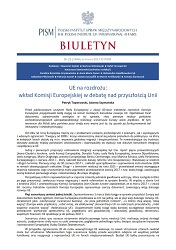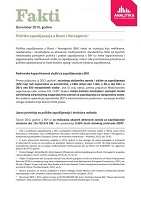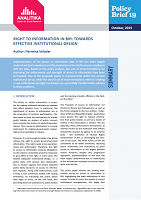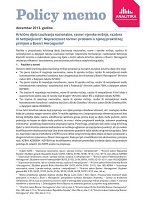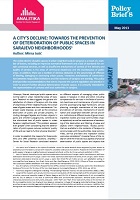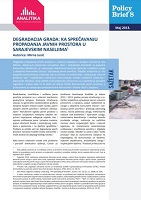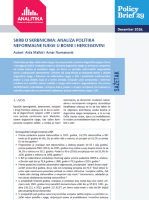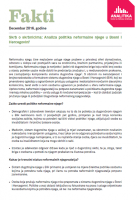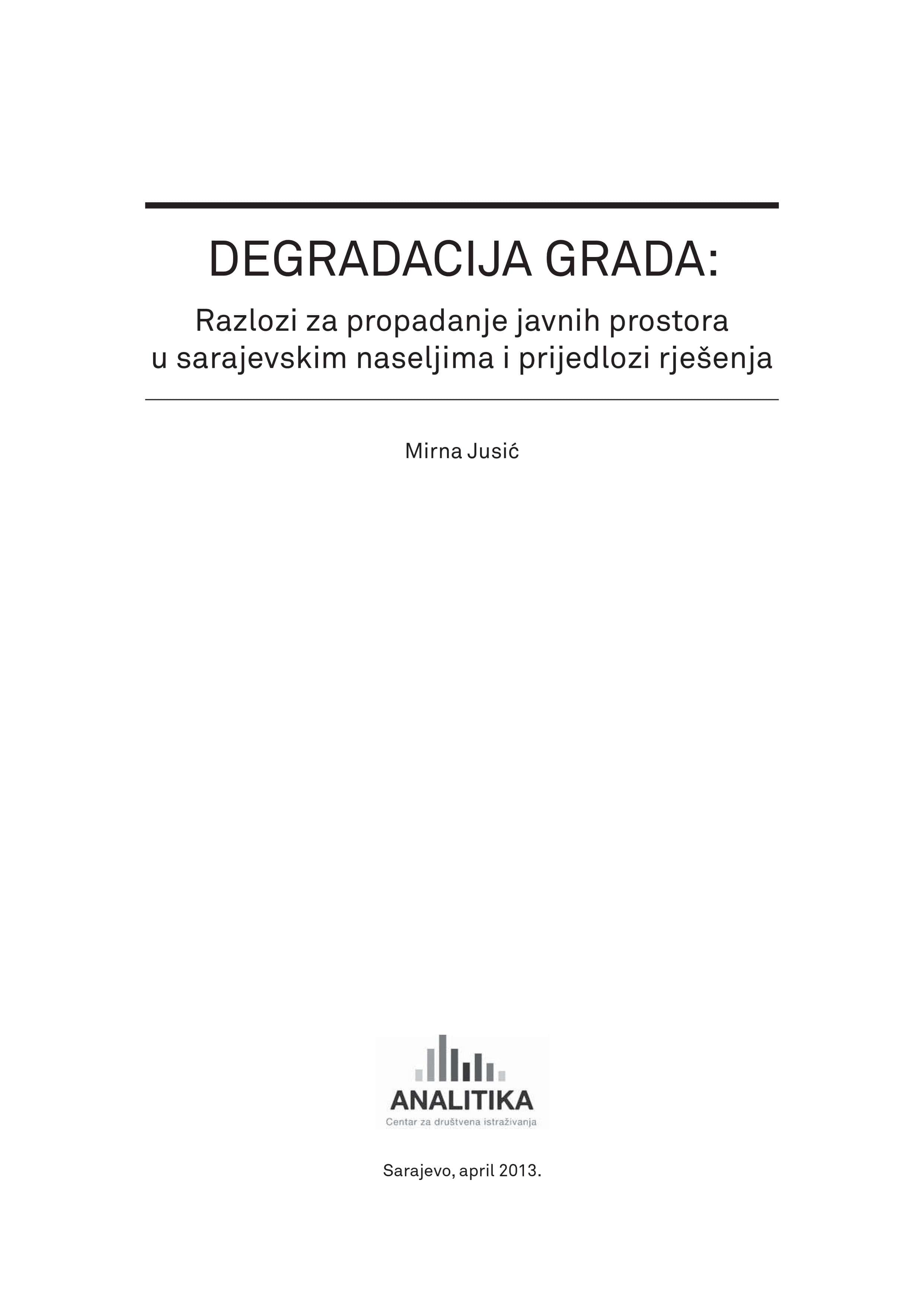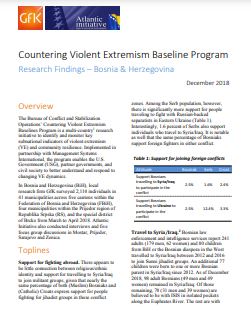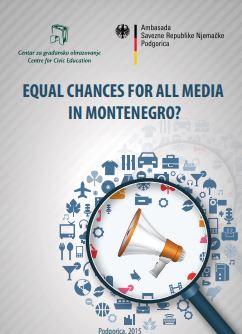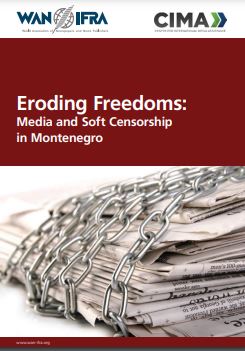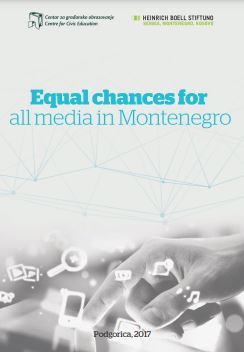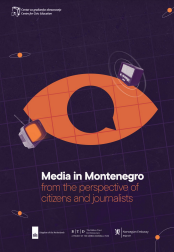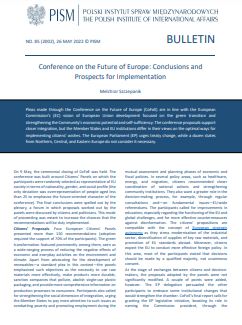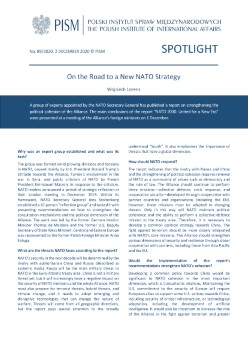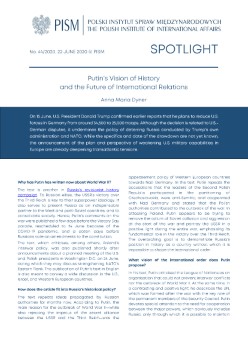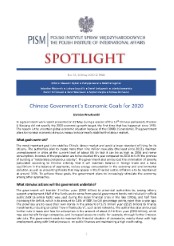Author(s): Ana Nenezić,Dragoljub Duško Vuković / Language(s): English
Project “Equal chances for all media” aims to contribute to promotion of media freedom and media pluralism in Montenegro, in accordance with regulations of European Union and best international practices and standards. More precisely, the project aims to mitigate the process of creation of clear mechanisms for allocation and control over financing of media from public funds and allocation of state aid to media in Montenegro, in order to harmonise this system with international standards and best practices which encourage development of media freedoms. Project is also focused on improvement of awareness of interested public in regards to responsible money expenditure from the Budget of Montenegro, indicating on relation of public sector in Montenegro toward media, through financial allocations on various grounds. Public sector, as subject of research, according to Law on Budget of Montenegro, includes state organs, municipalities (local self-government units), independent regulatory organs, public institutions and companies wherein state or municipalities have majority ownership share, judiciary (courts and prosecutions), Protector of Human Rights and Freedoms and others. Centre for Civic Education (CCE) first introduced this issue in Montenegro, and has been monitoring it closely for five years now. In this regard, CCE has produced five national and one international report that are relevant sources for numerous domestic and international addresses, though they still remain insufficiently used by Montenegrin institutions. Research for 2016 was conducted in this framework, within which there was information collected on media, informative agencies, public relations agencies, production houses, and etc. that were allocated financial resources from public sector organs on the basis of agreements on provision of services, specialised services, or other grounds. Analysis was produced that provides an updated and comprehensive overview of allocation of public funds on national and local level during 2016 to abovementioned subjects. Considering that certain trends are already being identified, cross section of total allocations for 2013 – 2016 is also provided. In addition, this publication contains review on media normative and institutional framework, as well as analysis of efficiency of implementation of Law on Free Access to Information and Law on Public Procurement (in the part of obligation of public sector organs to publish all tender documentation timely on the portal of public procurement of Public Procurement Administration of Montenegro). Finally, in relation to underlying themes, publication offers conclusions and recommendations for improving existing state, including proposals for amendments of appropriate legislative framework, which CCE has been advocating for quite some time now, so that this area would be harmonised with international standards in the area of freedom of expression and media independence, competition, state aid allocation and public procurement. Findings from previous five national reports and an international one have indicated existence of numerous irregularities and understatements when it comes to financing of media and related subjects from the Budget of Montenegro, as well as the need to regulate this area adequately. As it was observed, public sector organs have a tendency to maintain their influence through selective and non-transparent financing, thereby directly violating market conditions and competition, and exerting indirect pressure on editorial policy. Insufficient transparency of this process and the (non)existence of precise and binding criteria for allocation of funds, along with underived legal framework, additionally affects the ever-deteriorating state in Montenegrin media. Considering that the estimated advertising market in Montenegro amounts to EUR 9.5 – 10 million on annual level, amounts that are being allocated from public funds to media and related subjects lead to conclusion that state remains individually one of the key factors able to shape this market to detriment, or for the benefit of certain media, thereby their sustainability. According to available data of CCE, mostly relating to information that have been acquired from 66% or 67% of public sector organs, around 2.5 million Euros are being invested in media and related subjects from public funds on annual level, not including the additional 30% of organs that refuse to submit their information. This means that this is a realistic minimum figure, reasonably assumed to be significantly, if not twice, higher. In addition, this does not include allocations for public broadcaster RTCG, nor for local public broadcasters, with the addition of which a sum of at least 17 million Euros per year would be reached. Continued insistence on unclear mechanisms for allocation of budget funds to media will lead to further deviations on media market and it will jeopardise the functioning of some, or improve the operation of other media on discriminatory basis and contrary to competition policy of EU. Citizens, as tax payers, have the right to be informed on manner and criteria of spending of public funds, as well as whether the manner of allocation of those funds affects impartial reporting of media on state organs and decision-makers, i.e. to which extent that allocation (does not) support the pluralism of media and whether it helps or hinders development of timely, objective and impartial reporting. An important consequence of disorganisation in this area is the ever-present soft censorship, which accelerates the erosion of media independence in Montenegro. Furthermore, self-censorship is being strengthened as well as the already conspicuous polarisation of media, but also a poor quality of journalism which – as such – cannot adequately contribute to public debate when it comes to important matters of democratisation and Europeanisation of Montenegrin society, since it often neglects the code of journalists and professional standards. Causes should be sought in the fact that media were, and still remain, critical actors of clarification of numerous misuses by the government. There is not small number of cases in Montenegro when media, via investigative journalism, launched issues from various spheres, on which the public otherwise would not be informed. Those cases are drawing large attention of not just domestic, but of international public as well, thereby demonstrating the importance of media in the fight against corruption, abuse of political power, as well as against all forms of violation of human rights. However, in order for media to execute their monitoring role, they must be politically and financially independent in their work, operate under precisely regulated legal norms and free of inappropriate external political influences. Without clear mechanism and criteria of allocation of tax payers’ money, a dangerous space for interventions of government on media market is being opened. This report indicates paths which can be used to exert control and pressure on media and provides recommendations that would put an end to such poor practice, which deprives the citizens of Montenegro of their right to free and independent media, which accurately and impartially report on activities of government, political parties and other institutions, as well as on other subjects of public interest.
More...
